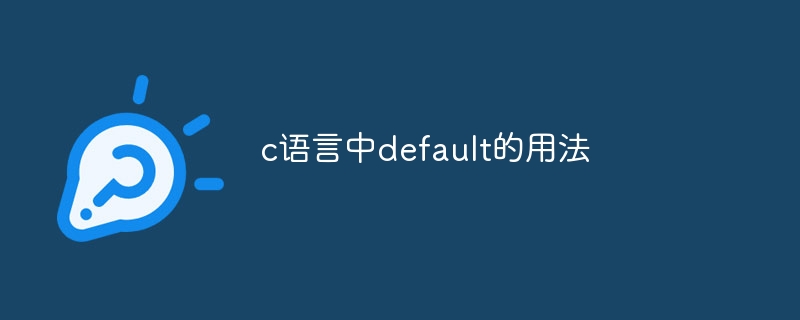Home >Backend Development >C#.Net Tutorial >Usage of default in c language
Usage of default in c language
- 下次还敢Original
- 2024-04-27 22:06:47677browse
The default keyword in C language is an optional statement, used when there is no matching case statement in the switch-case statement. It provides default behavior that ensures that the switch-case statement performs some operation even if there is no matching case.

Usage of default in C language
default keyword
In the switch-case statement of C language, default is an optional statement, used to handle the situation where there is no matching case statement. When executing switch-case, if the value of the control variable does not match any case condition, the default statement block is executed.
Syntax
<code class="c">switch (expression) {
case value1:
// Code to be executed for value1
break;
case value2:
// Code to be executed for value2
break;
...
default:
// Code to be executed if no case matches
break;
}</code>
Function
- Provides default behavior to ensure that even if there is no matching case, switch-case Statements can also perform some operations.
*Prevent programs from undefined behavior or unexpected termination. - Simplify the code and avoid using multiple if-else statements to handle different situations.
Note:
- The default statement must be placed at the end of the switch-case statement because it matches all other cases.
- The default statement can contain one or more statements, enclosed in curly braces ({}).
- If there is no default statement and the expression does not match any case, no action will be performed.
- If the expression is an integer or enumeration type, you can omit the default statement, and the program will automatically perform the "implicit" default behavior, that is, do nothing.
- However, for other types, such as strings or structures, the default statement must be explicitly specified, otherwise an error will occur in the program.
The above is the detailed content of Usage of default in c language. For more information, please follow other related articles on the PHP Chinese website!

